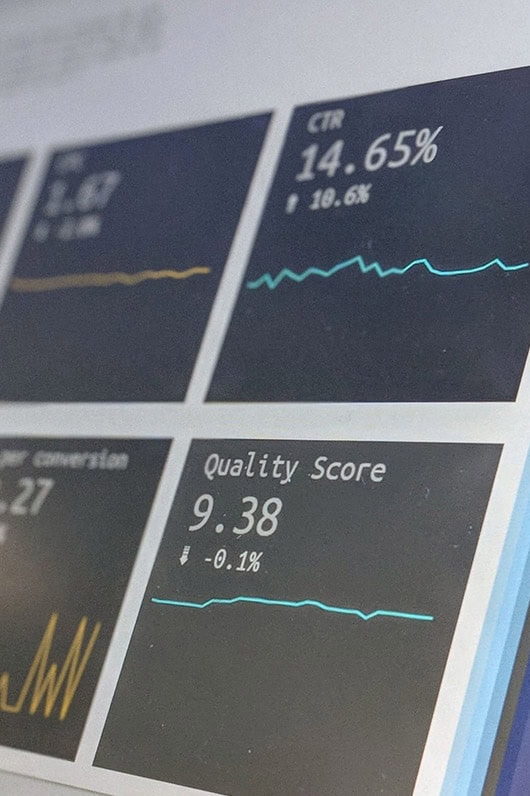In Malta, the majority of private limited companies rely solely on their auditors to prepare the financial statements as part of the audit process. However, who is ultimately responsible for the financial statements?

In preparing this publication, the authors researched different parts of the Companies Act (Chap 386 of the laws of Malta) as well as international standards for auditing. This publications aims to provide additional information about the role of directors.
Since it customary for auditors to prepare the financial statements of private limited companies, directors question who is responsible for the financial statements? Is it the directors who are responsible or the auditors since they are being paid to provide such service?
Directors’ Responsibilities
The Companies Act (Chap 386) clearly states that the directors have the lions share of the responsibilities when it comes to the preparation of the financial statements. As a starting point, the Companies Act requires directors to prepare and present financial statements about their companies, which show a realistic position of the company as at year end.
Financial statements tend to consist of the Income Statement and Balance Sheet, Notes to the accounts, Auditors’ report and accompanying schedules. Other variations and additional financial components may be required depending on the accounting financial framework being applied and the country in question.
The income statement provides information about the profitability of the company for the year under review whereas the balance sheet presents information about the company’s assets and liabilities up till the financial year end. Apart from the information which is being reported in the income statement and the balance sheet, another striking difference is the time period which makes up both statements. The income statement only captures events which occurred in the year whereas the balance sheet presents all the assets and liabilities which are owned by the company, irrelevant when they were acquired.
The directors responsibilities does not stop here. Directors are also responsible for the contents of the financial statements. The financial statements should be prepared in such a way as to show continuity (the technical term being Going Concern Basis) unless there are events which suggests otherwise.
The policies applied in generating the financial statements are also subject to a number of judgement calls and estimates. All of these are the responsibility of the directors.
One of the most important responsibilities of the directors is to implement controls which deters and detects fraud and errors. All of these responsibilities ultimately help directors safeguard a company’s assets.
The directors’ responsibilities are of such paramount importance that it is customary for financial statements to have a section which clearly lists down the directors responsibilities. An example of this is shown hereunder. The below is applicable for financial statements which satisfy the GAPSME small criteria: –
Sample directors’ responsibilities in financial statements
Company Name
Director’s Responsibilities
For the year ended Date
The director is required by the Companies Act, Cap. 386 of the Laws of Malta to prepare financial statements for each financial year which give a true and fair view of the state of the affairs of the Company and of the profit or loss of the Company for that year. In preparing these financial statements, the director is required to:
- adopt the going concern basis unless it is inappropriate to presume that the Company will continue in the business;
- select suitable accounting policies and apply them consistently;
- make judgements and estimates that are reasonable and prudent;
- account for income and charges relating to the accounting year on the accruals basis;
- value separately the components of asset and liability items; and
- report comparative figures corresponding to those of the preceding accounting period
The director is also responsible for keeping proper accounting records which disclose with reasonable accuracy at any time the financial position of the Company and to enable them to ensure that the financial statements comply with the Companies Act (Cap. 386) enacted in Malta. This responsibility includes designing, implementing and maintaining such internal control as the director determines is necessary to enable the preparation of financial statements that are free from material misstatement, whether due to fraud or error. The director is also responsible for safeguarding the assets of the Company and hence for taking reasonable steps for the prevention and detection of fraud and other irregularities.
Auditors’ responsibilities vs directors’ responsibilities
The directors’ responsibilities are further mentioned in the Auditors’ Report. Contrastingly, the auditors responsibilities for the financial statements seem to point out to the work which was done by the auditors and goes further as to state that the audited financial statements cannot be interpreted as being absolutely correct but rather that they should be free of mistakes.
At this point you might be thinking that this is wrong and that the directors and auditors do not share the same responsibility. But should they have the same responsibilities? Many point out that the responsibilities are disproportionately assigned between the auditor and directors. Yet this is done with a purpose.
It can be claimed that the audit originated from the need to confirm the directors work. It is imperative to understand that the shareholder is not always running the business. In large companies, most of the times, the shareholders aren’t even allowed to enter the building as and when they please. You don’t believe us? Go buy Apple shares and try waltzing into their building because you own their shares. Being a shareholder of a company does not necessarily mean that you will be running the company. That is the directors’ role. This role is also referred to as the Duty of Care.
Directors have a clear mandate, that is to serve the shareholders by managing the business in their best interest.
Yet shareholders are in the dark. They don’t know what is being done by the directors. We’re saying that is common for shareholders not to be granted access to the building, let alone how they can judge whether the director did his job within the mandate or not.
This is where the auditor comes in. Ultimately, an auditor is responsible towards the shareholders of a company. Infact, the auditor is appointed or reconfirmed at the Annual General Meeting by the shareholders.
One of the auditors’ principal roles is to provide assurance to the shareholders that their interest is rightly being served. The best way to provide such service is if all auditors follow the same guidelines. Country specific regulations and principles are usually built from International Standards for Auditing (ISAs) and the International Accounting Standards are followed to ensure that the audit is carried out to the highest professional level possible while adhering to standard accounting principles. In theory, different auditors should have similar conclusions.
For this reason, the auditors responsibilities in the financial statements are limited in comparison to those of the directors and this was done with the intention of best serving the shareholders’ interest. Yet, the auditors responsibility is still very important and not to be taken lightly.


